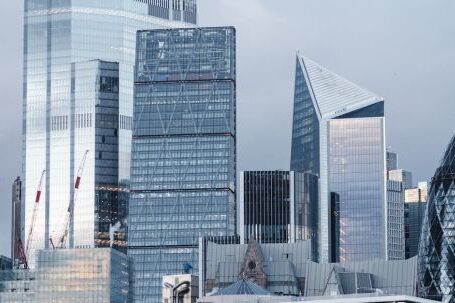In recent years, the fashion industry has been under scrutiny for its negative impact on the environment. From excessive waste to the use of harmful chemicals, the industry has contributed significantly to pollution and climate change. However, there is a growing movement towards sustainability in the fashion world, with many UK industries leading the way in adopting greener practices. In this article, we will explore how these industries are embracing sustainable fashion and working towards a more eco-friendly future.
Reducing Waste: The Circular Economy
One of the key principles of sustainable fashion is the concept of the circular economy. Instead of the traditional linear model of “take, make, dispose,” the circular economy aims to keep resources in use for as long as possible by recycling and reusing materials. UK industries are taking steps to implement this model by adopting innovative techniques such as upcycling and recycling. Designers are transforming discarded materials into new and unique pieces, reducing waste and minimizing the need for new resources.
Ethical Sourcing: Fair Trade and Organic Materials
Another crucial aspect of sustainable fashion is ethical sourcing. UK industries are increasingly turning to fair-trade and organic materials to ensure that their products are produced in an environmentally and socially responsible manner. Organic cotton, for example, is grown without the use of harmful pesticides, reducing the negative impact on ecosystems. Additionally, fair-trade practices ensure that workers are paid fair wages and are provided with safe working conditions.
Local Production: Supporting UK Artisans
Supporting local artisans and manufacturers is becoming a priority for many UK fashion industries. By producing clothing and accessories locally, companies can reduce their carbon footprint by minimizing transportation and supporting local economies. Furthermore, local production allows for greater transparency and control over the supply chain, ensuring that ethical and sustainable practices are upheld throughout the manufacturing process.
Innovative Technologies: Sustainable Materials and Processes
Advancements in technology have paved the way for more sustainable materials and processes in the fashion industry. UK industries are embracing these innovations to reduce their environmental impact. For instance, sustainable fabrics made from recycled materials, such as recycled polyester or regenerated nylon, are gaining popularity. Additionally, digital printing techniques are replacing traditional dyeing methods, which require large amounts of water and contribute to water pollution.
Consumer Education: Promoting Conscious Choices
While UK industries are making great strides towards sustainability, consumer education is essential for driving lasting change. Many companies are actively engaging with their customers, educating them about the environmental and social impacts of their purchasing decisions. By promoting conscious choices and highlighting the benefits of sustainable fashion, these industries are empowering consumers to make more informed and responsible choices.
A Sustainable Future: Collaboration and Innovation
The journey towards a more sustainable fashion industry requires collaboration and continuous innovation. UK industries are actively collaborating with industry stakeholders, policymakers, and non-profit organizations to drive systemic change. By sharing knowledge, resources, and best practices, these collaborations are accelerating the transition towards a greener and more sustainable future.
In conclusion, UK fashion industries are leading the way in embracing sustainable practices and working towards a more eco-friendly future. From reducing waste and adopting the circular economy to promoting ethical sourcing and supporting local artisans, these industries are making significant strides towards sustainability. With the support of consumer education and continuous collaboration, the UK fashion industry is on a green path towards a more sustainable fashion future.





